- November 7, 2017
- Posted by: SportsV
- Categories: Event News, Features, Home News, Industry News, Interviews, News
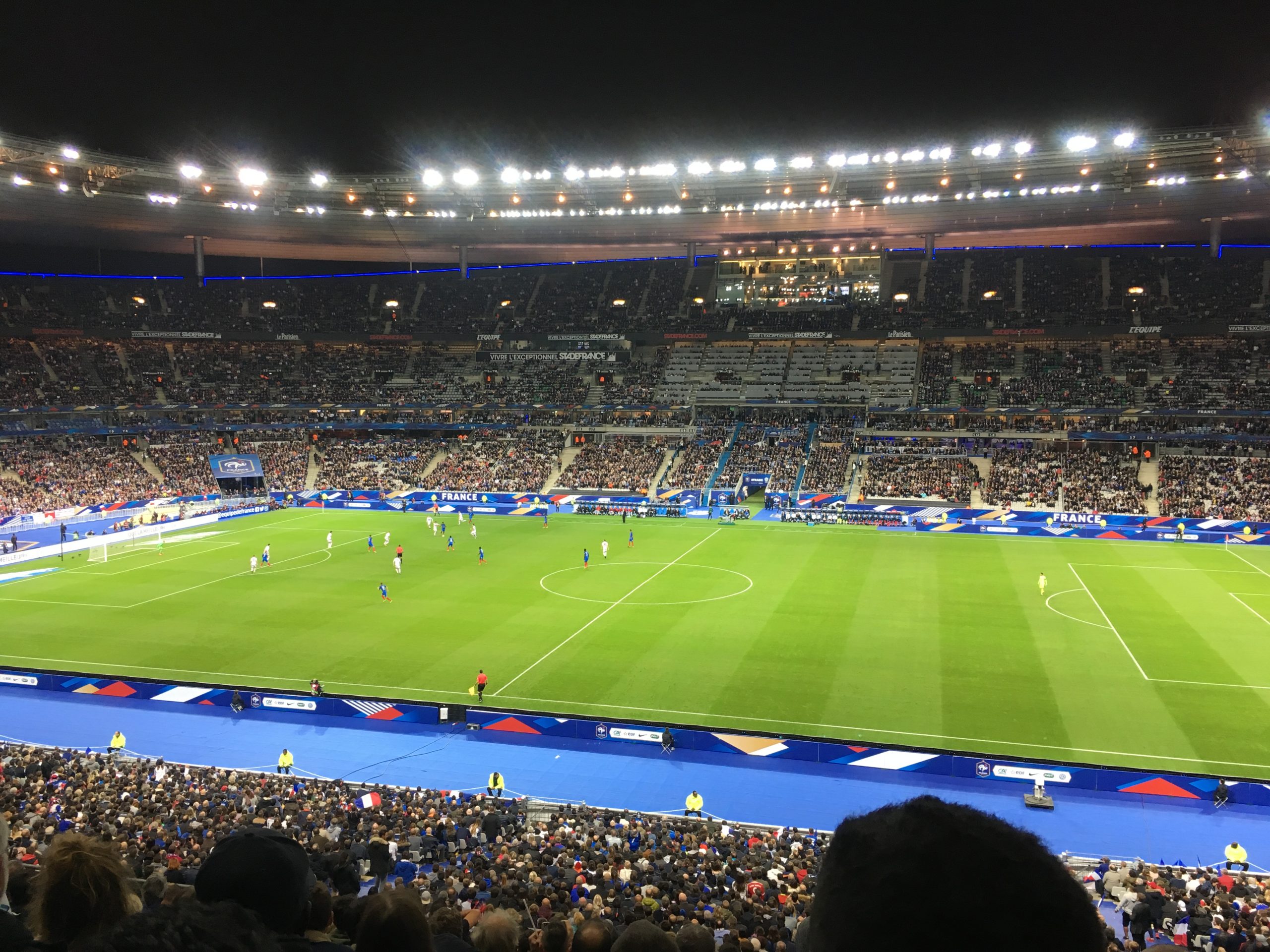
In the following industry interview, SVB’s Katie McIntyre hears insights from Jonas Djian, Venue Manager at France’s iconic National Stadium, Stade de France.
What are your main responsibilities and what kinds of challenges do you have to overcome on a daily basis?
On non-event days, I am responsible for managing a team of around 10 to 15 staff for the guided tours, museum and shop here at Stade de France. On event days, I manage the shop and the Event Day guided tour staff, which involves running tours just 4 hours before the teams arrive at the stadium for the game.
The everyday challenge is of course safety and security. We host 100,000 people per year out of event days, so it’s a matter of crowd management to coordinate the daily activities happening within the arena. For example, during concert build-up preparations, there are a lot of trucks coming into the stadium bringing in staging, etc., and this period, which is in the summer months, is also the most popular for guided tour activity. This means we have to be really careful in regards to the route that we use for the tour, so as to avoid any accidents or collisions with the build-up works, but at the same time keeping a great experience for our consumers.
Most of the people coming into the stadium every day are football (soccer) fans, i.e. around 90%, and with the changing rooms also becoming the green rooms/lounges to receive the concert artists, we have a big job explaining that Stade de France is not only a football stadium but in reality also an arena with an open roof that can host a lot of different events, from opera, concerts and even discotheques, to monster trucks, car-, motor- and horse-racing events.
As we don’t have a resident team playing here at Stade de France, it’s really important to make the stadium live out of the event, that was the big challenge when the stadium was constructed in 1998 with 80,000 seats. In many countries, host stadiums have found themselves in financial trouble after big competitions, for example a number of the South African stadia following their hosting of the FIFA World Cup and Brazil’s Maracana stadium post their hosting of the 2014 edition.
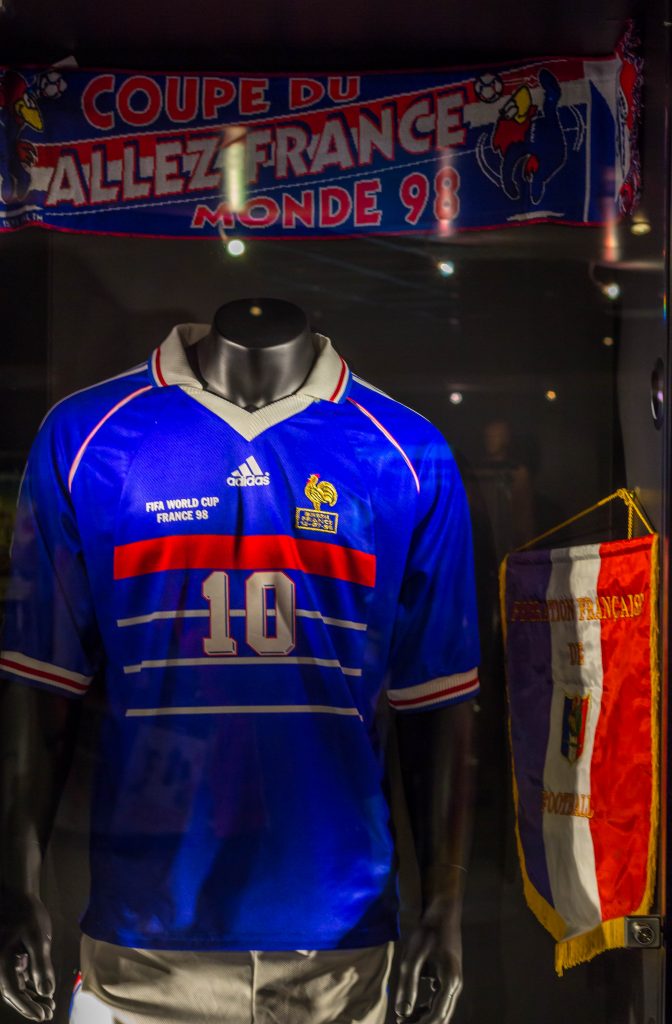
Merchandise is one of your key responsibilities, how do you compile your business plan and tailor it towards your business objectives?
To be honest, merchandise is really related to the results of the national football team, which is totally affiliated to the stadium after the victory in the FIFA World Cup of 1998, which in fact changed deeply the relation between French society and football.
The more the France national team secures great results, the more you are going to sell. Especially here, because the shop is inside the stadium, so you have to pass through security control to go in and 95% of our consumers are coming especially for the guided tours.
Stade de France is not only a host venue for football but also for rugby, so the whole stadium (i.e. its visual identity), must take on the appearance/branding of the specific event being played here at that time. So of course in the shop, for example, you are not going to sell football merchandise when in rugby mode, so you change everything in your visual merchandising to host the different event and of course in order to increase the revenues.
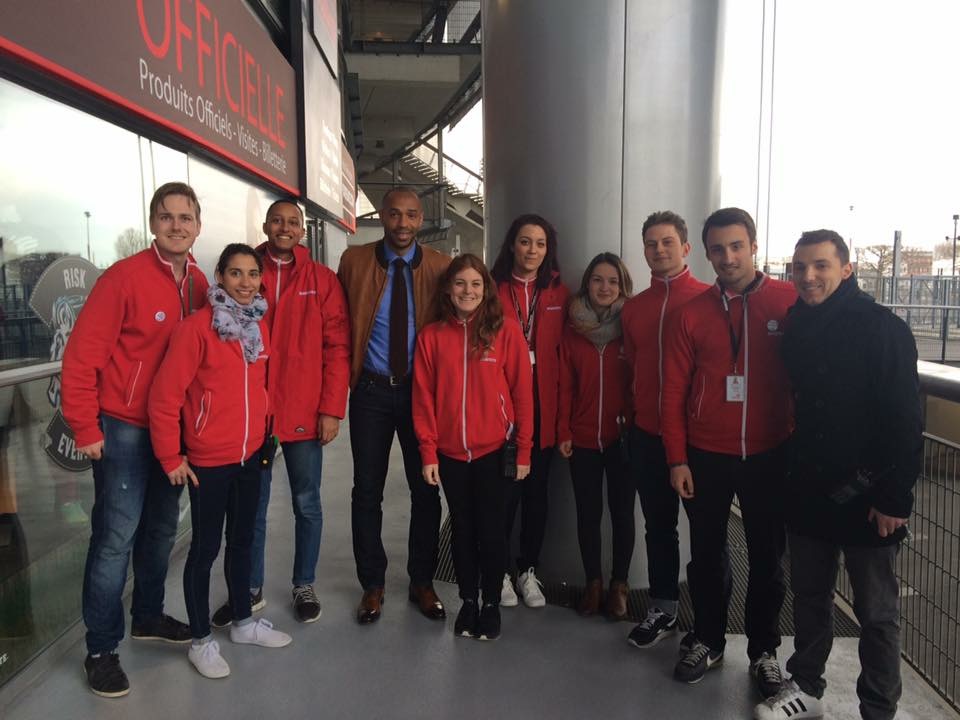
Stade de France also boasts a museum. How many visitors does the museum attract per week and what are your main business objectives?
The museum, shop and guided tours are all part of the same service. So we have some 100,000 visitors to get through the venue, all while ensuring their needs are met.
Our main objective at this time is to develop new technologies. Of course digitalisation in order to update the experience of consumers is one key focus at present. Being located here in Paris, the competition between the different museums on our doorstep is huge, so we are trying to play on a different field, by creating a football museum, a rugby museum or a music museum according to the events in real time.
For example, after we hosted world-renowned rock legends U2 for their Joshua Tree concert, we made sure to present something from the event in the museum the very next day. It will be the same if the French national football team receives Brazil or if the rugby team plays the All Blacks, we will always try to present a team shirt or something like that.
The big problem is that we don’t have the rights property of the audio/video content, so it makes the challenge even more difficult.
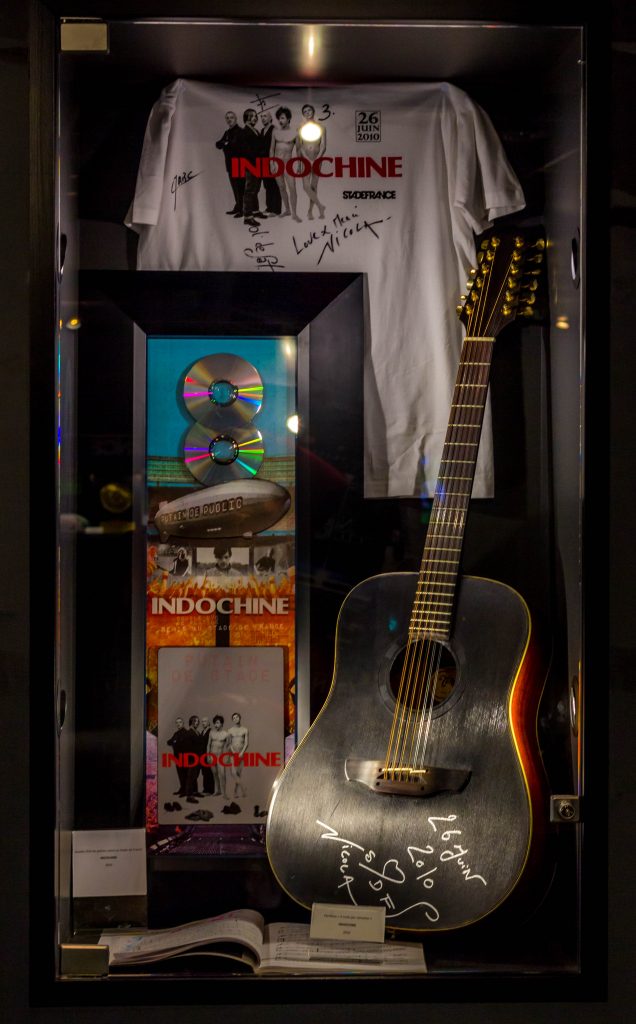
I understand you were also in charge of the renovation of the itinerary visits and customer experience. What did this entail?
In ten years’ time, most consumers not only in the stadium industry but in the whole of society, will be millennials, so we have to update the way in which we ‘live’ the experience. AR or VR could be included, not only in the museum but also for the tour.
Recently, I read an article about the Louvres Museum and how it is using professional YouTubers to promote its collections to the youth. Of course, just as the way of consuming is changing with the rise of the digital native, we have to adapt and transform the experience that we deliver accordingly. To this end, we have been making reflections on the different types of renovations that we could do here at Stade de France for the last 12+ months. I compiled something like 15 benchmarks of different stadiums around the world over the last three years to be inspired and to determine the most successful best practices. We’ll see in the future how we will manage with that.
My ambition in terms of the way that I want people to live their experience in our shop, takes nearby Disneyland and the Disney brand as inspiration, whereby I want to create lasting memories and unforgettable moments to make people feel like they’re in a magical world when they’re in the stadium!
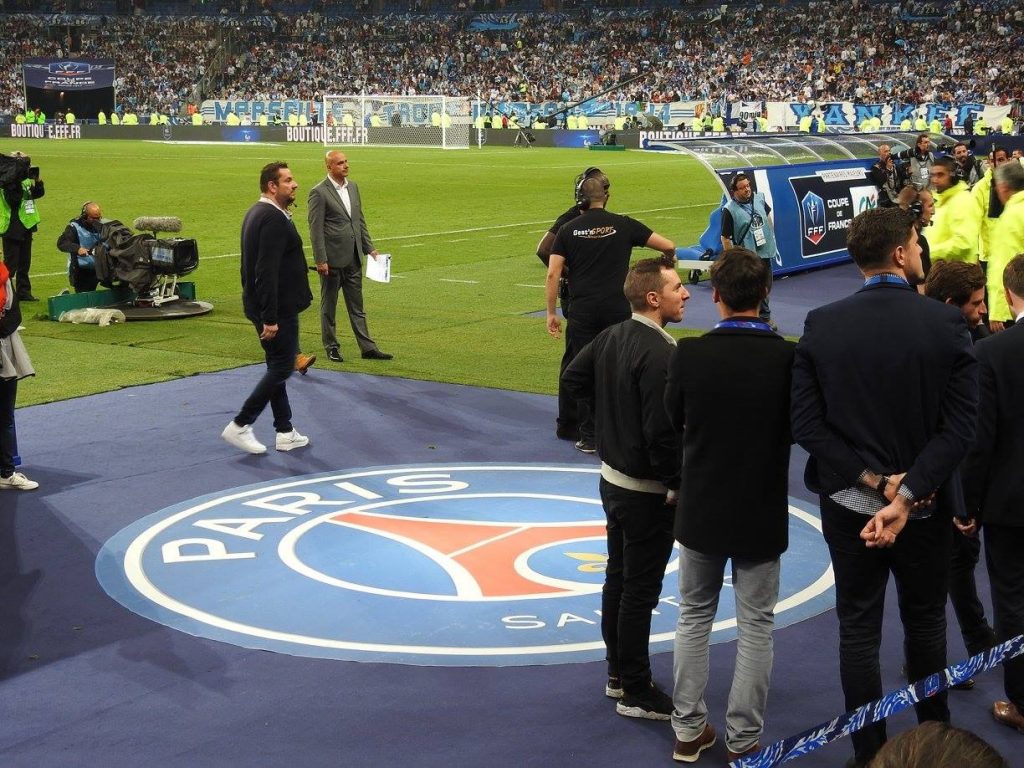
You are also in charge of running the match day tours for the French National Team on game days. What are the main challenges and goals in terms of delivery?
This tour is very special and encompasses some fan engagement, as guests get to see the players in the changing rooms getting their team talk and game plan by the logisticians that are in the National Team staff. At the end of the tour, guests can even have their pictures taken with the FIFA World Cup replica trophy that resides in our museum.
Most of the consumers are fathers with their sons that come to see the game and dream together.
The difficulty of this tour is that it starts at 4pm, whereas the stadium doors don’t generally open to the general public until 7pm, so there are big issues to deal with in terms of safety and security.
We have access for 100 people in the player area between 4pm and 5pm only, then we have to get everybody out of this zone before the police and stadium security take control of the stadium, so we have to be quick.
At the end of the tour, people have to go out of the stadium at 6pm; it’s the same problem of safety and security but in reverse. Everybody needs to exit as the safety and security procedures are not finished yet.
We have to remain in constant contact with the security services, agents and leaders during those operations, it’s a lot of work but in the end this is making a totally unique experience, just a few stadiums in the world are doing it.
Recently, I hosted the tour manager of Olympique Lyonnais (OL) Groupama Stadium. He came to see how we were running the tour here at Stade de France and he’s since started to do it in Lyon. I’m really proud of that.
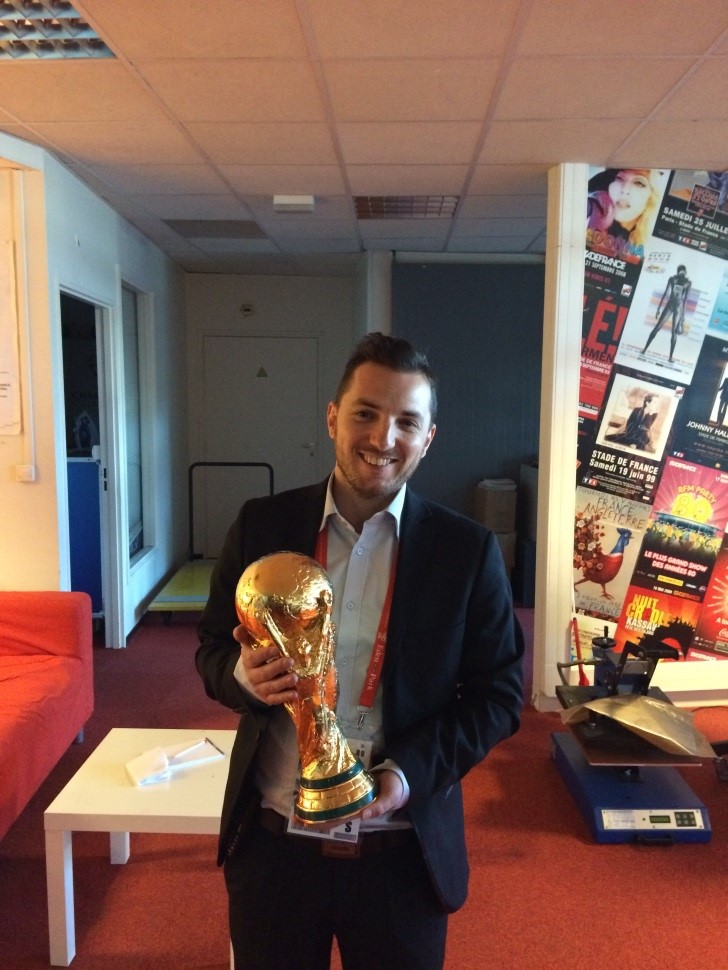
You run a WhatsApp group for Stadium Tour Managers across the globe. Can you tell us more about this group, who should join and why? Obviously you believe knowledge-sharing amongst industry peers is a must, correct?
It’s not only for Stadium Tour Managers, but all job types that you can find in and around a stadium, for example, we have one member, Dan, who is a designer at Seattle Century Link Field for the Seattle Sounders, we also have Jeroen, who is in Marketing at the Amsterdam ArenA, and Guillaume, who is in IT at the Accor Hotel Arena.
As I said previously, I made a large benchmark of different stadiums all around the world, where I met a lot of professionals. I collected a lot of business cards but I wanted to find a way to regularly stay in contact with the network that I created. In fact, WhatsApp is just the tool to share our experiences.
My idea is to use technologies and digital services to create a community. As most of us in the group are directors or managers, everybody is of course really busy. Nowadays, our phones have become like a sixth sense, we are all the time with them, so that’s why I choose WhatsApp, which is the fastest way to share content, pictures, ideas, etc. You can speak whenever you want, the group is open 24hrs a day, 7 days a week, which is good because there are members from all over the world, with different time zones. Even though I am the administrator, I don’t put in any filters, everybody is allowed to speak whenever they want, about whatever they want and can exchange emails or speak in private for a deeper and more personal conversation or make appointments for meetings during an event or a summit. This is how I met with Guillaume from Accor Hotel Arena in Paris, who is a huge specialist in IT, and also Simone from AC Fiorentina.
It breaks the formality of platforms such as LinkedIn, because it is so informal. I’m convinced that behind organisations there are humans that have a great passion for their jobs and are ready to share with different specialists from other venues. These are the people that I’m trying to reach with the group.
I also have a passion for cultural exchanges, and behind our chats we can see the different approaches of our jobs regarding our different cultures. For example, when Thiago from Arena Corinthians sends pictures of a wedding taking place during half-time at a football game, you can tell how Brazilian this is.
As well, Lorena from Real Madrid showed us a new experience in Santiago Bernabeu, where they reproduce a ‘fake team bus’ for their tours, which gives guests the opportunity to experience how the players feel when arriving to thousands of adoring fans on match days.
It’s amazing to see these kinds of things, which can in turn inspire you in your own stadium’s management.
I believe knowledge-sharing is a must, of course! Everybody should be taking inspiration from their mentors. For example, in my case, I have really improved and developed my skills by reading the likes of PanStadia and Sports Venue Business (SVB), and there are also plenty of organisations, like the European Stadium & Safety Management Association (ESSMA) and the Association of Luxury Suite Directors (ALSD), that are also using that system.
How are you employing technology and best practices?
I’m also using WhatsApp with my teams to send information, some actualities, and for them to report back to me what is happening on the field.
As well as this, digital technology is helping me to create a natural actuality and content that I use with the Community Manager. For example, during the summer, a lot of people are coming into the stadium wearing the shirt of their favourite team or country, and we decided to take a picture of all of them to create a ‘fan book’ and to put them on our different social media networks. It’s a bit of fan engagement and we interacted with the Community Managers of the teams concerned as well, that was a lot of fun. FC Nantes in France is doing something similar, they ask their fans to take pictures with their Nantes shirts during their travels all around the world, and it works really well. [See pictures below.]
I’m also preparing a video for our 20th anniversary celebrations. We will be asking people coming to the stadium to wish Stade de France a ‘Happy Birthday’! We are going to use new technologies to collect their content and make something really fun!
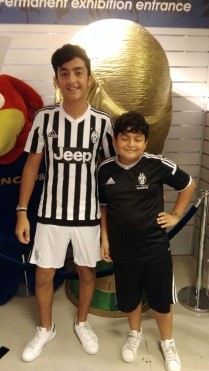
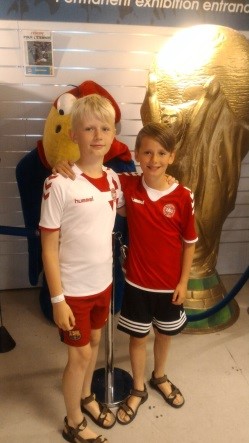
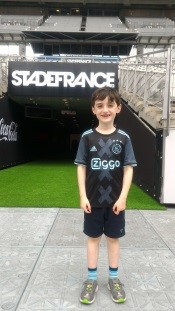
Finally, how do you foresee the sector evolving over the next 3-5 years?
You see what is happening today in the US sports and stadiums? This will become the ‘norm’ in European stadia in a few years too.
Stadiums will no longer be places to simply see some sports. They will be places to see an ‘event’, with the ‘experience’ starting from your home. In these stadiums, you will be able to enjoy commercial, retail and dining experiences before an event with family and friends, then you will get to enjoy some activities or animations before experiencing the ‘show’ (rather than simply watching a game) and again, post-event, you will enjoy further moments and experiences in and around the area of the stadium.
New stadiums will all be at least ‘smart’ and will be totally integrated into city life, ingrained in the city fabric, if they’re not already, and there will be property investments made. The best examples of this kind of future-thinking can be seen in the cases of the Amsterdam ArenA, with its transformation ahead of its hosting duties during the UEFA EURO 2020 tournament, the VTB Arena Park in Moscow, Russia, and the Groupama Stadium in Lyon, France.
And, just as in the case of society in general, the arrival of millennials as the main consumers will change forever the way in which we ‘consume’ sport in stadiums. All new stadiums will be at the very least ‘smart’ or ‘connected’, sporting a full range of connected services, from in-seat delivery to animations and VR/AR. The Customer Relationship Management/Fan Relationship Management (CRM/FRM) capabilities of these venues will also have been developed to optimise revenues. These will be the basics!
To finish, I’d like to thank Katie, Sports Venue Business (SVB) is my favourite online magazine! I have really improved my industry knowledge by reading it regularly and I really recommend it to all professionals. It’s a really great honour to be interviewed!
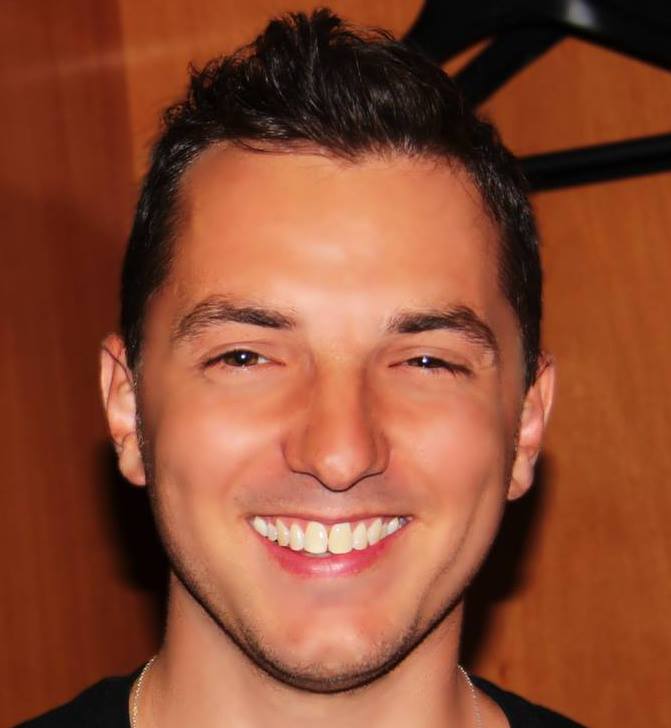
We owe a huge debt of thanks to Jonas for taking the time to be interviewed for this piece and for sharing his truly insightful and inspirational views and ideas.
Anyone wishing to join the WhatsApp group, please email Katie at: katie@sportsvenuebusiness.com who will put you in contact with Jonas.
#SportsVenueBusiness – keeping you in the know!

